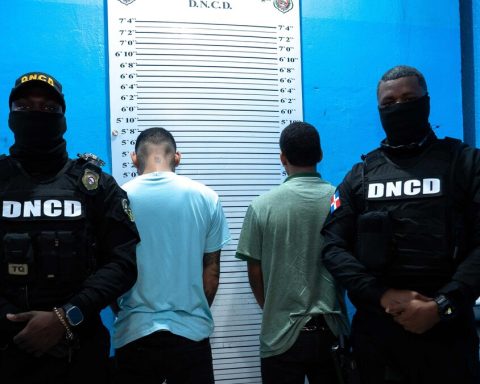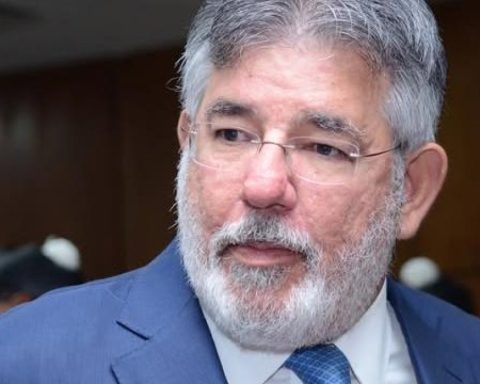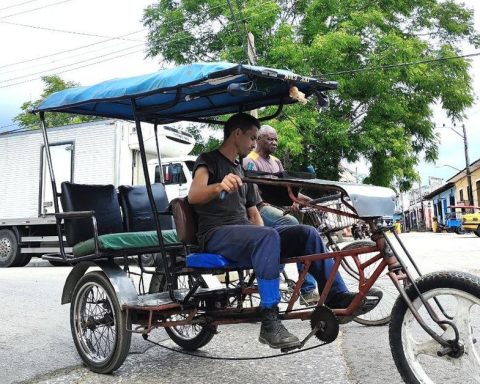Santiago de Chile, (EFE).- Several countries of Americaespecially Chile and Colombia, are considering reforming by law the extension of the workdaywhich in some places like Mexico reaches exhausting nine or ten hours a day.
Especially in the big capitals of Americawhich concentrate most of the population, where after eight or nine working hours, one or two are added to eat, and normally two more to travel to the workplace and return home.
If we add to this the need to sleep for at least six hours, as recommended by health experts, the result is that for American workers there are barely six hours left to help their children with homework, spend time with their partners, go to the supermarket, cooking, going to the movies or any other personal or leisure activity.
Significant and representative is the case of Mexico, one of the countries in the world where more hours are worked per year, according to the Organization for Economic Cooperation and Development (OECD).
According to their data, Mexicans work 2,124 hours a year, more than Costa Rica (1,913), Russia (1,874) and Japan (1,598).
A similar number is found in Colombia, Brazil, Peru and Argentina, where, like Mexico, the working day is 48 hours a week and there is usually only one day off, usually Sunday.
Low wages, inflation and the general economic crisis mean that many have to reconcile two occupations and many more fall into the black market, where experts agree that “Latin America has become the new China.”
DIFFERENT POLICIES
While the trend to rationalize schedules and reduce working hours is spreading in Europe, the reaction in the countries of the Americas is mixed: only Chile and the US seem to be working resolutely in the same direction.
Last week, the Finance Commission of the Chilean Senate approved a pioneer project in the region that seeks to reduce the weekly working day to 40 hours, an initiative presented by the 2017 Communist Party and which will be voted on by the plenary session this week.
The project, which has great citizen support and the support of business associations after a long dialogue process, is gradual: it contemplates an initial reduction of 45 to 44 working hours a week during the first year of the law’s validity.
The second reduction, considered from the third year, will be up to 42 hours, while the goal of 40 hours will be achieved in the fifth year of validity.
IMPROVEMENT OF PRODUCTIVITY AND QUALITY OF LIFE
In the United States, the most promising example of efforts to achieve a reduced work week is in the state of Maryland.
There, two Democratic lawmakers last January introduced a bill to offer tax incentives to companies that approve and implement a 32-hour work week with no pay reduction.
“I think we are going to see more and more examples, especially in the most progressive states like California, New York or Illinois, especially if the Maryland proposal is approved in the coming months,” Christopher Kayes, director of the Department of Management from the George Washington University School of Business, in Washington, DC.
For Kayes, all the indicators regarding the four-day work week point to an improvement in productivity, but also in the quality of life of workers.
Even so, the expert acknowledges that it will be difficult for any legislation to be adopted at the national level, since federal laws on the work week have not undergone changes since the 1930s, when the 40-hour limit was approved.
“What will happen is that companies that want to be competitive when it comes to attracting workers, and keeping them, this will be one of the tools they can use,” he ventured.
GRADUAL REDUCTION
Also in Colombia, President Gustavo Petro has among his priorities the labor reform, presented to Congress last Thursday, with which he intends to establish a 42-hour work week and extend nighttime hours from 9 a.m. to 12 p.m., from 6 a.m. afternoon until 6 in the morning.
A reform that, according to the Minister of Labor, Gloria Ramírez, seeks to end job insecurity, temporary contracts and informality in platforms such as Uber and Rappi.
As in Chile, it will be gradual: during the first year the working week will be reduced by one hour and from the fourth year of the law’s entry into force, two hours will be reduced each year until reaching 42 hours per week.
In Argentina, the convenience of reducing employment has been on the table for years – only in 2022 four bills were presented that await their treatment in Parliament – but progress is slow.
Promoted by Peronism, the unions and the left-wing movements, they propose shortening the workload (6 hours a day and 36 a week, 6 hours a day and 30 a week or 8 hours a day and 40 a week) without cutting pay and limiting overtime or “Additional features”.
Among the foundations of these projects is the need to give workers a better quality of life, with psychophysical and social conditions that, in turn, promote an increase in the productivity of companies.
They also point to the positive effects on job creation from the redistribution of work that implies a reduction in working hours. And, on the other hand, they point out the need to update the legal framework.
According to official data for the third quarter of 2022, 28.8% of Argentines are overemployed by working more than 45 hours a week, while 11.9% are underemployed (working less than 35 hours a week).
Although unemployment fell to 7.1% in the third quarter of 2022, the Argentine labor market is experiencing severe problems, with 37.4% of wage earners in informal conditions, close to a quarter of those employed working for their own account and 40% of the employed earning less than a minimum wage.
IMMOBILISM IN MEXICO, BRAZIL AND PERU
In Mexico, the issue has not generated interest from the government of Andrés Manuel López Obrador, who has focused his agenda on increases in the minimum wage, union democracy and prohibiting subcontracting, while Congress has focused on reform to double the holidays.
The latest legislative initiative on working hours, not yet discussed, was presented by deputy José Luis Báez Guerrero, from the National Action Party (PAN), who proposed establishing that for every four and a half days of work, the employee must enjoy two days and a half rest.
The legislator also recalled that according to the World Health Organization (WHO), work stress that can be caused by overwork or lack of vacations generates losses of between 4% and 6% of the national economy in Mexico.
In Brazil, the idea did not exist on the agenda of the conservative president Jair Bolsonaro, but it does not seem to have excessive weight in that of the progressive Luiz Inácio Lula Da Silva for the moment either.
In 2017, a labor reform was approved that allowed working days of 12 continuous hours, 36 hours of rest and a maximum of 220 hours per month, as long as there is an agreement between employer and employee.
Lula wants to revoke some points of the 2017 labor reform, but not the one that affects the working day itself.
In Peru, it is estimated that between 75% and 80% of workers are informal, with which they are not protected by any type of legal protection, and suffer abuse from employers, who set the hours.
This situation makes human trafficking a daily evil in Peru.
In 2021, more than 2,600 Peruvians were victims of human trafficking, of which 83% are women and 25% are minors, but in that year there were only 72 convictions in the judicial system, according to data from the organization CHS Alternativo. .
















